From yesterday’s thread in response to yesterday’s HE piece about the mostly bizarre NYFCC awards (i,e., woke lapdogs panting over DEI picks):
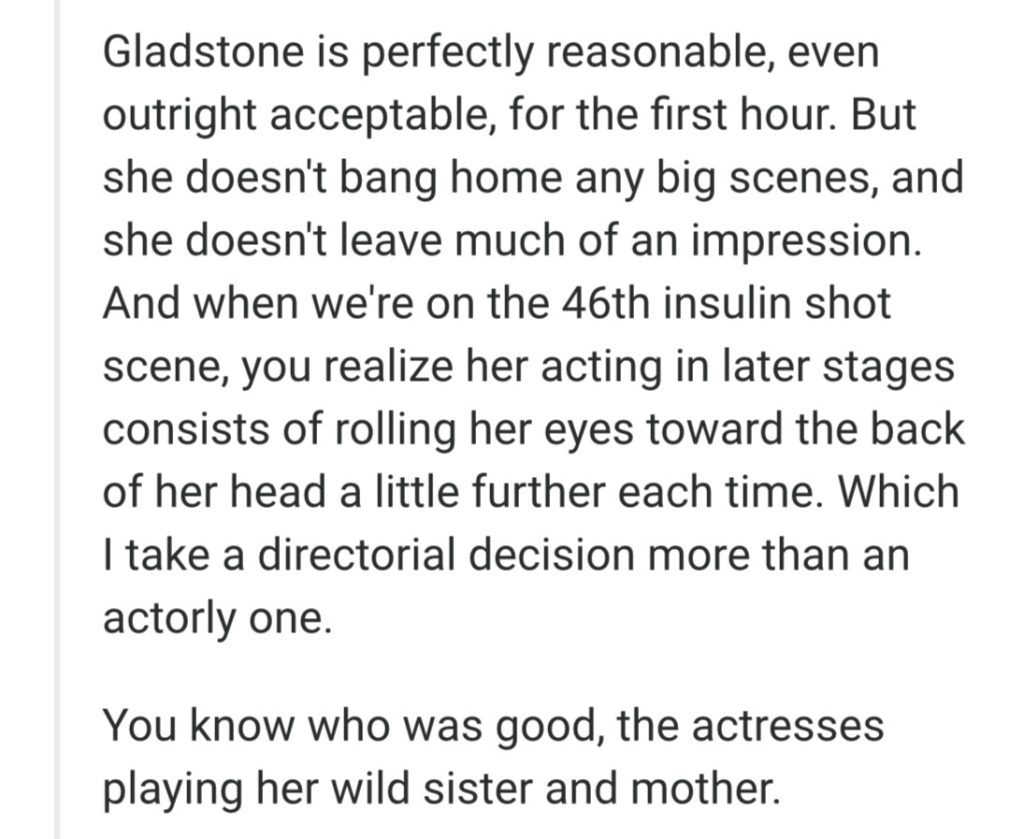
Former Supreme Court Justice Sandra Day O’Connor, a Reagan appointee, was a moderate rightie — a “constitutional conservative” — but she was no Amy Coney Barrett. Nor was she Ruth Bader Ginsburg. My hazy recollection is that she wasn’t too bad overall. Regrets about O’Connor’s passing, but then again she led a full life and made it to age 93.
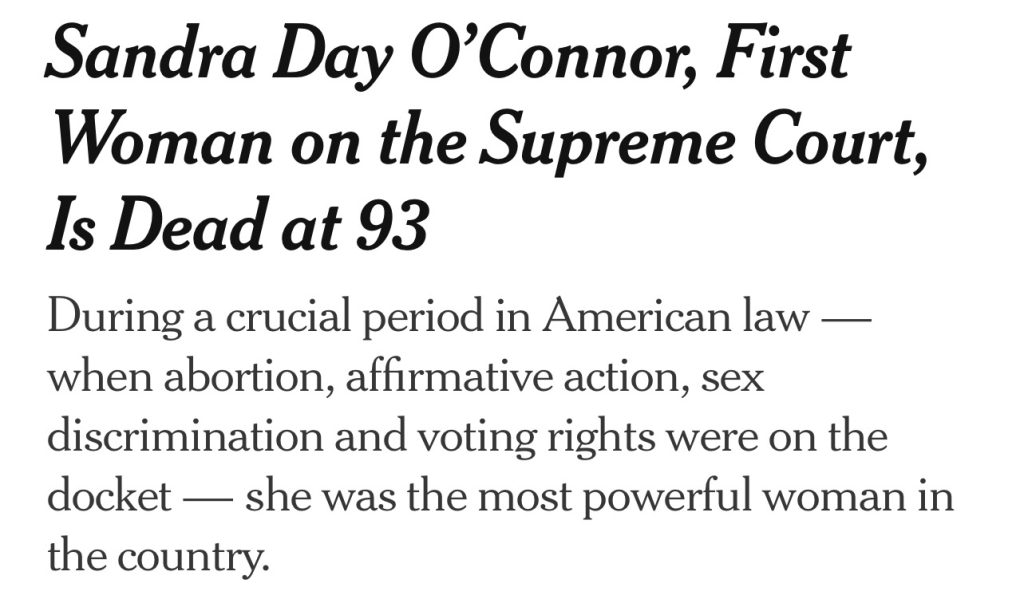

HE agrees wholeheartedly with Michael Sherman, but his 12.1 anti-Disney Substack article doesn’t mention their forthcoming Snow White movie, which has been described by Rachel Zegler as being about Snow White becoming a leader in the medieval struggle for feminine fulfillment. New song lyrics: “If I’m lucky a prince will never save me / and I will then shape my own destiny.”

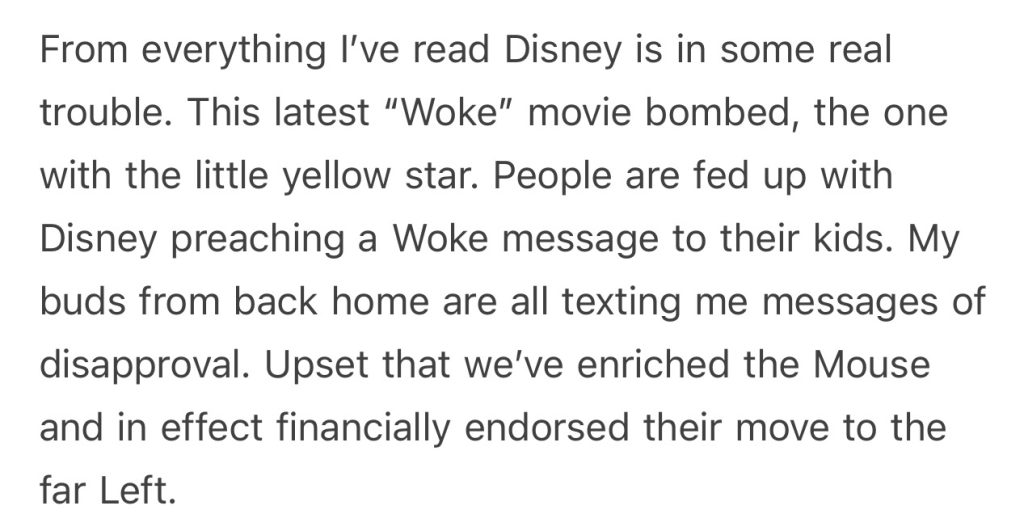
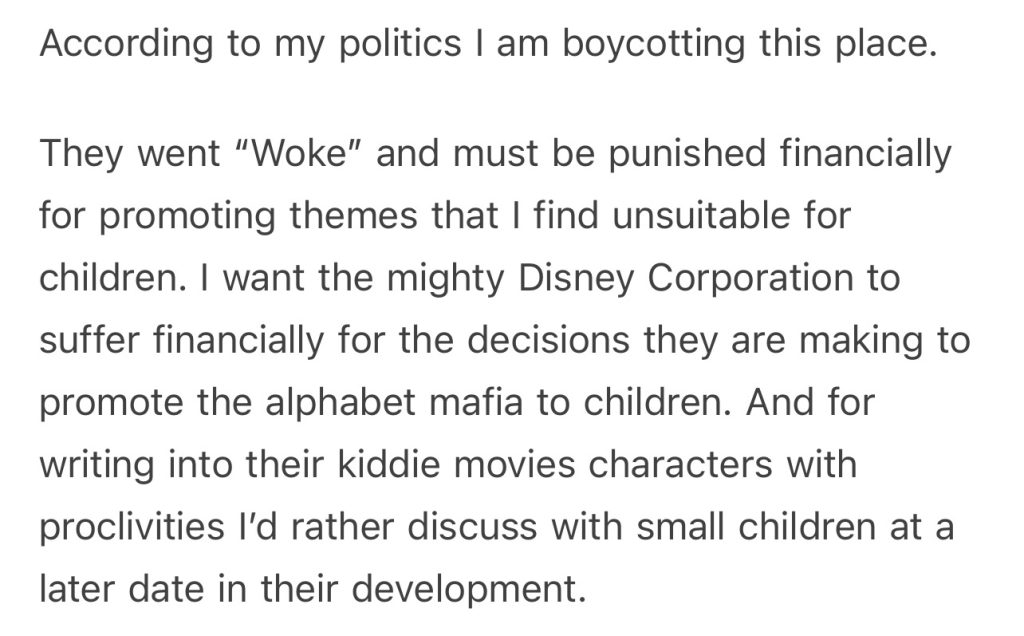

I’m not saying that yesterday’s sudden loss of control of the facial muscles on the right side of my face and my mouth in particular…I’m not saying I look like Charles Laughton in The HHunchback of Notre Dame (‘39) but half of my facial features, which were fairly top-of-the-line when I was younger and at least pleasant in recent years…my looks are pretty much gone now, and if I was scheduled to see Sutton today I would be worried about alarming her. In the space of 24 hours I have suddenly become a mildly grotesque figure…I am now Richard III…dogs bark and howl as I pass by.
Before:

After:
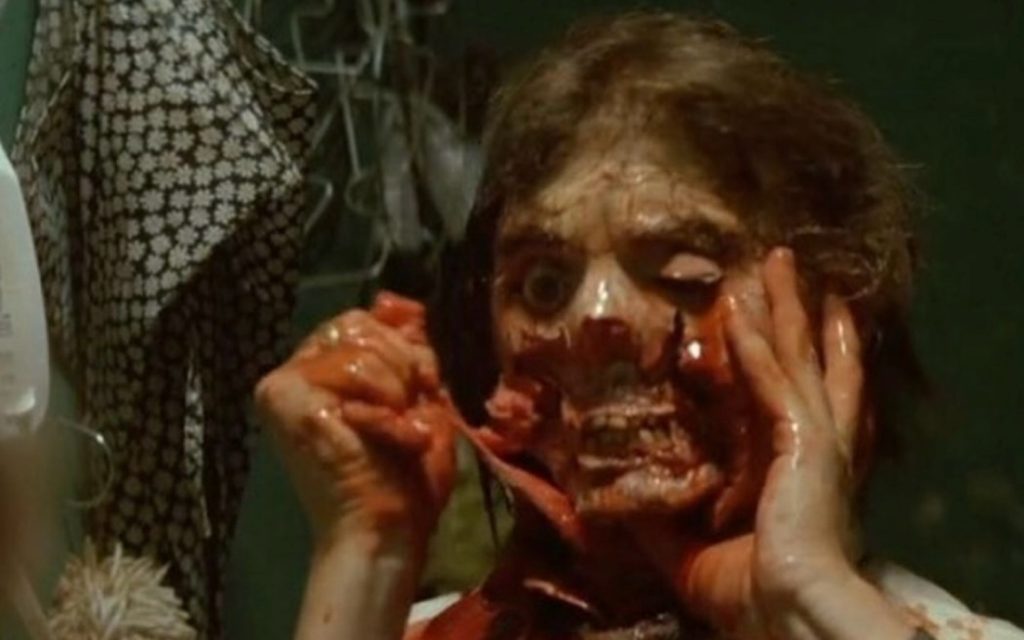
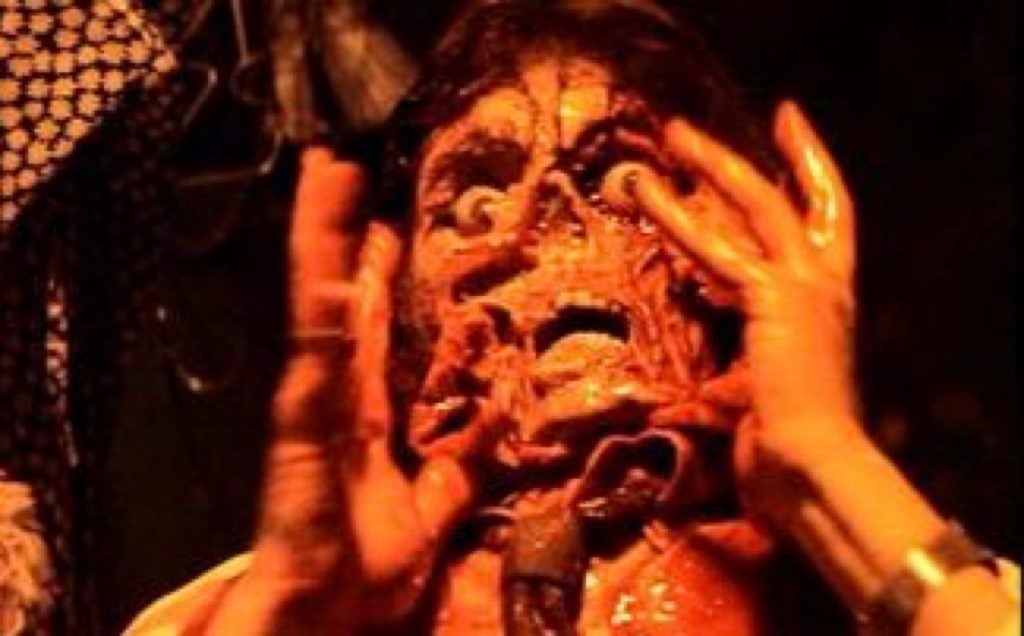
Bonus points for anyone who can identify which film the above monster-in-the-mirror images are from. No, it’s not Martin Scorsese’s The Big Shave.

You go into a Michel Franco film (New Order and Sundown are recent HE favorites) with an understanding that dysfunction, severity and obsession will be served, and that some kind of rug will be be pulled out at some point. Franco doesn’t traffic in compassion and heartfelt currents as a general tendency; he does radical and harsh.
But that’s what I like or at least respect about Franco. He keeps the viewer on edge, and therein lies the tension.
So I was surprised when I saw Memory the other night and began to realize that it would be dealing the cards without the usual “uh-oh…when will the ferocious stuff happen?”
It’s basically a kind of strange-but-tender relationship thing…an acting-exercise drama about two damaged 40somethings — Jessica Chastain‘s Sylvia and Peter Sarsgaard‘s Saul — who probably shouldn’t get too deeply involved with each other because they have turbulent histories and are both too fucked up…Saul especially.
Memory is set in Brooklyn and you can really feel those down-in-the-weeds Brooklyn vibes. It settles into two families for the most part, and nobody’s really happy or steady or swingin’ from a star.
But the acting is so good and true…I felt immediately held and fascinated. I’m trying to think of the last time I saw a sexual relationship drama that had me thinking “wow, this might not end well and neither party seems to understand that…in fact it might end really badly.”
And yet things…I won’t say but this is easily the gentlest Franco film I’ve ever seen.
Sylvia is a cautious and brittle mom who works at an adult daycare center (a gathering of bruised and traumatized types) while raising the teenaged Anna (Brooke Timber).
Sylvia is wary of whatever might be around the corner, and so naturally she gradually gets involved — at first guardedly and tentatively, with Saul, who is clearly a bit weird but not dangerously so — a gentle, socially awkard beardo who’s plagued by some kind of dementia, and can’t seem to remember anything from the past.
Right away you’re wondering what semi-responsible woman (particularly one with a troubled parental and sexual history) would let this guy into her life?
The bottom line is that Chastain and Sarsgaard are quite the penetrators and dig-deepers, and for this reason alone Memory (Ketchup Entertainment, 12.22) is worth a watch.
Question: Why would a film distributor call itself Ketchup Entertainment? What if a similar operation called itself Mayonnaise Distribution? Or Miracle Whip Ltd.? Or Steak Sauce International? Or the Mustard Brothers?

Amazing news! Hollywood Elsewhere is a sudden, overjoyed victim of something that looks and feels like Bell’s Palsy.
All to say that this morning (six hours ago) I realized that the right side of my face had more or less frozen. I can’t smile on my right side — my upper lip just lies there like a limp prosthetic. If I sip coffee the coffee dribbles out of the right side of my mouth. I look like a guy in a Francis Bacon painting, or like Quasimodo. Plus my drooping right eye won’t completely close (no blinking to speak of) and won’t stop watering.**
If I can’t fix this my days of looking like a moderately attractive fellow are fucking OVER, man.
I tried my primary care physician and she told me to go Urgent Care, which isn’t going to remedy anything. I have an appointment with a facial paralysis specialist in Stamford early Monday morning, but Tatiana, who grappled with Bell’s Palsy seven or eight years ago, says I need to do something about this immediately as this condition can quickly degenerate. So I’ll take my computer along and post reactions to the NYFCC winners as things move along.
** I’m praying to God this is a temporary thing that will heal itself or otherwise go away.
Yesterday afternoon I was trying to get an imperfect lower-jaw veneer to fit correctly, and I pushed down upon it hard, which may have resulted in my natural teeth pushing down on facial nerves.
Update: The Urgent Care physican says it’s Bell’s Palsy, but a mild case of it. It’ll gradually go away, he says.
Bell’s palsy, defined as an acute peripheral facial weakness of unknown cause, has an annual incidence of 20 to 32 per 100,000. Most patients recover completely, with or without treatment, but 20% to 30% can have permanent facial weakness or paralysis.
Website: “A 10-day course of corticosteroids (prednisolone 25 mg., twice daily) started within 72 hours significantly improves the chances of complete recovery.”
Herewith are the final choices of the New York Film Critics Circle, which were voted on earlier today. HE strongly agrees with one judgment — the Best Supporting Actress prize going to The Holdovers‘ Da’Vine Joy Randolph. And Oppenheimer‘s Chris Nolan winning the Best Director award…fine. And some of the minor category awards were acceptable. But I responded to other major-category NYFCC winners with puzzlement and annoyance.
Best Film: Killers of the Flower Moon (Apple Original Films/Paramount Pictures) / HE reaction: On its own dramatic terms, Martin Scorsese‘s sprawling, guilt-trip period drama is moderately approvable, at best, and is certainly a bear to sit through. (I’ve seen it twice.) It seems obvious that the NYFCC gave it their top prize for reasons and motives that sidestep cinematic principles. (A critic friend believes it may be Scorsese’s worst film ever). KOTFM was chosen as a gesture of support and compassion for the Oklahoma Osage in particular and victims of white avarice and greed in general. What should have won? Obviously Poor Things, Maestro, Oppenheimer, American Fiction, The Holdovers….hell, even Barbie is more deserving of a Best Picture trophy than Killers.
Best Director: Christopher Nolan, Oppenheimer (Universal Pictures) / HE reaction: Okay, no argument, good enough.
Best Actor: Franz Rogowski in Passages (Mubi) / HE reaction: What happened here? A plurality of NYFCC voters actually believe that Rogowski, an aggressively intense and deeply unappealing actor (I stopped watching Passages because of him)…the NYFCC congregation is honestly contending that Rogowski out-points the brilliant triumvirate of Bradley Cooper in Maestro, Paul Giamatti in The Holdovers and Jeffrey Wright in American Fiction? This is nutso.
Best Actress: Lily Gladstone, Killers of the Flower Moon (Apple Original Films/Paramount Pictures) / HE reaction: I’ve been saying all along that the Gladstone bandwagon is an identity thing….”let’s all celebrate a moderately okay performance by a Native American actress because she’s a Native American actress.” Her Mollie Burkhart delivers a certain simmering, accusatory undertow but she has no great scenes or or even distinctive ones — everything Gladstone puts out is subdued, restrained and a bit flat. The NYFCC voters acquiesced. Who should gave won?: Obviously Poor Things‘ Emma Stone or Maestro‘s Carey Mulligan — performances that reach big-time and rank far above and beyond.
Best Supporting Actor: May December‘s Charles Melton (Netflix) / HE reaction: I’m mystified by this. Melton is fine in May December, but what is this? What’s going on? Is it because he’s good looking and half-Korean or something? I actually felt that his performance was a little on the slightly weird, less-than-assured, flailing-around side.
Best Supporting Actress: Da’Vine Joy Randolph, The Holdovers (Focus Features) / HE reaction: Excellent call, emphatic agreement, best of the bunch.
Best Screenplay: May December (Netflix — Samy Burch, Alex Mechanik / HE comment: This is a completely deranged call. David Hemingson‘s The Holdovers script is way, way above the shooting-fish-in-a -barrel level of the campy May December…who’s kidding who here?
Best Animated Film: The Boy and the Heron (GKids) / HE comment: No comment.
Best Cinematography: Hoyte van Hoytema for Oppenheimer (Universal Pictures) / HE comment: No worries.
Best First Film: Past Lives (A24) — dir. Celine Song / HE comment: Fair enough.
Best International: Anatomy of a Fall (Neon) — dir. Justine Triet / HE comment: The Taste of Things is a far richer andf more enjoytable film.
Best Non-Fiction Film: Menus-Plaisirs-Les Troisgros (Zipporah Films) — dir. Frederick Wiseman.
The NYFCC are mostly ideological sycophants, political cowards, go-alongers…people who have sworn loyalty to the politically purifying, disruptive, anti-populist social serum that’s been plaguing cinema since ’17 or thereabouts…basically your Strelnikovs, your enlightened cool kidz…advocates of dynamic social change first and movie worship second.
…and the damp-finger-to-the-wind submission to woke terror that many NYFCC members live by or adhere to. For roughly five years now, they’ve been leading the DEI insanity charge up San Juan Hill…”charrrrrrge!”
Posted on 1.9.23, or not quite 11 months ago: In addition to their sometimes well-grounded, highly perceptive praising of stellar filmmaking and performances, the New York Film Critics Circle has (be honest) been in the grip of woke theology over the last four or five years. Most of us understand this, and the NYFCC honchos and spokespersons will deny it to their dying day.
For decades a NYFCC award was a gold-standard honor — a classy, triple-A stamp of irrefutable big-city approval. But since ’18 or thereabouts the NYFCC members have sought to integrate notions of quality with “the sacralization of racial, gender and sexual [identity],” as Matthew Goodwin put it in February 2021. In short, they’ve become known as a contender for the most reliably eccentric, woke-flakey critics group, neck and neck with the occasionally wokejobby Los Angeles Film Critics Association.
(Note: HE has agreed on certain occasions with LAFCA award calls, hence the term “occasionally woke-jobby.”)
For me the syndrome seemed to begin in 2018 when the NYFCC handed their Best Actress award to Support The Girls‘ Regina Hall. For me there was no contest among the Best Actress contenders that year — Melissa McCarthy‘s performance in Can you Ever Forgive Me? was heads and shoulders above Hall’s, and yet the NYFCC allowed themselves to be guided by identity politics. They disputed this, of course.
Former IndieWire guy Eric Kohn, a leader of the NYFCC’s Hall support group: “There is no groupthink to the NYFCC voting process. The rules are right there on the site. Nobody’s ‘using’ any single award for their private agenda.”
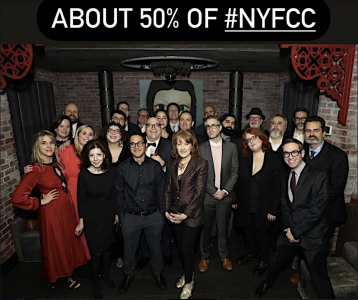
The following year the NYFCC handed their Best Actress trophy to Us‘s Lupita Nyong’o for no apparent reason other than her woke identity credentials. Posted on 12.14.19: “Seriously? Honoring Lupita Nyong’o’s performance was eight parts wokester virtue-signalling, and two parts serious regard for a noteworthy performance…trust me. The NYFCC used to be the NYFCC — now it’s an organizational ally of IndieWire‘s wokeness crusade. Good as she was in Jordan Peele’s interesting if underwhelming horror flick, Lupita basically delivered an intelligent, first-rate, Jamie Lee Curtis-level scream-queen performance with a side order of raspy-voiced predator doppleganger.”
HE believes that the NYFCC’s grand-slam wackadoodle happened in 2020, when they gave their Best Film award to Kelly Reichart‘s First Cow (a baffling, eccentric call for eccentricity’s sake), and their Best Actor prize to Da 5 Blood‘s Delroy Lindo, who played an furiously unstable Trump supporter (and in so doing beat out Judas And The Black Messiah‘s Lakeith Stanfield, who was far more deserving, not to mention The Father‘s Anthony Hopkins, Minari‘s Steven Yeun, The Sound of Metal‘s Riz Ahmed and Mank‘s…okay, let’s forget Gary Oldman).
Plus their Best Actress award went to Sidney Flanigan (Never Rarely Sometimes Always), basically for quietly weeping during an interview with a Manhattan-based abortion counselor after zero emoting throughout the entire film. They also gave their Best Supporting Actor award to Da 5 Bloods‘ Chadwick Boseman, basically because the poor guy had tragically passed a few months earlier, and their Best Supporting Actress: trophy to Maria Bakalova (Borat Subsequent Moviefilm), which was based upon nothing other than the fact that she played a spunky woman from a small Eastern European village who wound up hoodwinking Rudy Giuliani in a hotel room.
How wackadoodle were their 2022 choices? I for one was…I was about to say flabbergasted when the NYFCC handed their Best Director award to RRR‘s S. S. Rajamouli — a virtue-signalling gesture if there ever was one, and a head-scratching accolade for a film that many of us regard as “flamboyant garbage…ludicrous, primitive crap that believes in ridiculous extremes and heroic absurdities.” But I wasn’t surprised given what the NYFCC has turned into. They also went for Everything Everywhere All At Once‘s Ke Huy Quan (“Short Round”) for Best Supporting Actor — strictly an identity call + a nod to the popularity of EEAAO among Millennials and Zoomers — and Nope‘s Keke Palmer for Best Supporting Actress…an award that made no sense as all given that Palmer merely flaunted her Millennial diva spunkitude.
The exact same cosmic or celestial shift in the cathedral of the soul was experienced by Joseph Goebbels, Moses, Mouse (my Siamese cat who died of pancreatic cancer over 20 years ago), Amelia Earhart and Mother Teresa. Ascended or descended…the soup is hot, the soup is cold.
The legendary, less–than–beloved Henry Kissinger has died at age 100.
He was quite the influential diplomatic maestro during the Nixon and Ford administrations, but his bottom-line reputation has been disdained or at least debated for many decades, particularly by aged and post-traumatic residents of Cambodia and Chile and their descendants.
My own brusque opinion is that Kissinger was a brilliant, audacious, cold-blooded chess player whose initiatives and achievements were generally unaffected by humanitarian concerns.
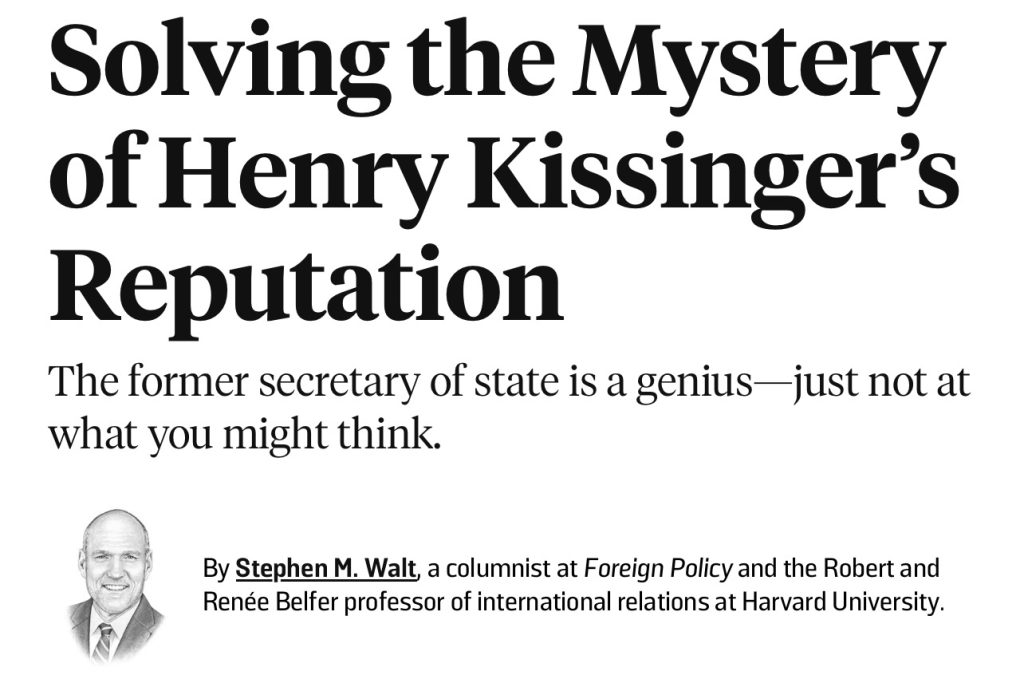
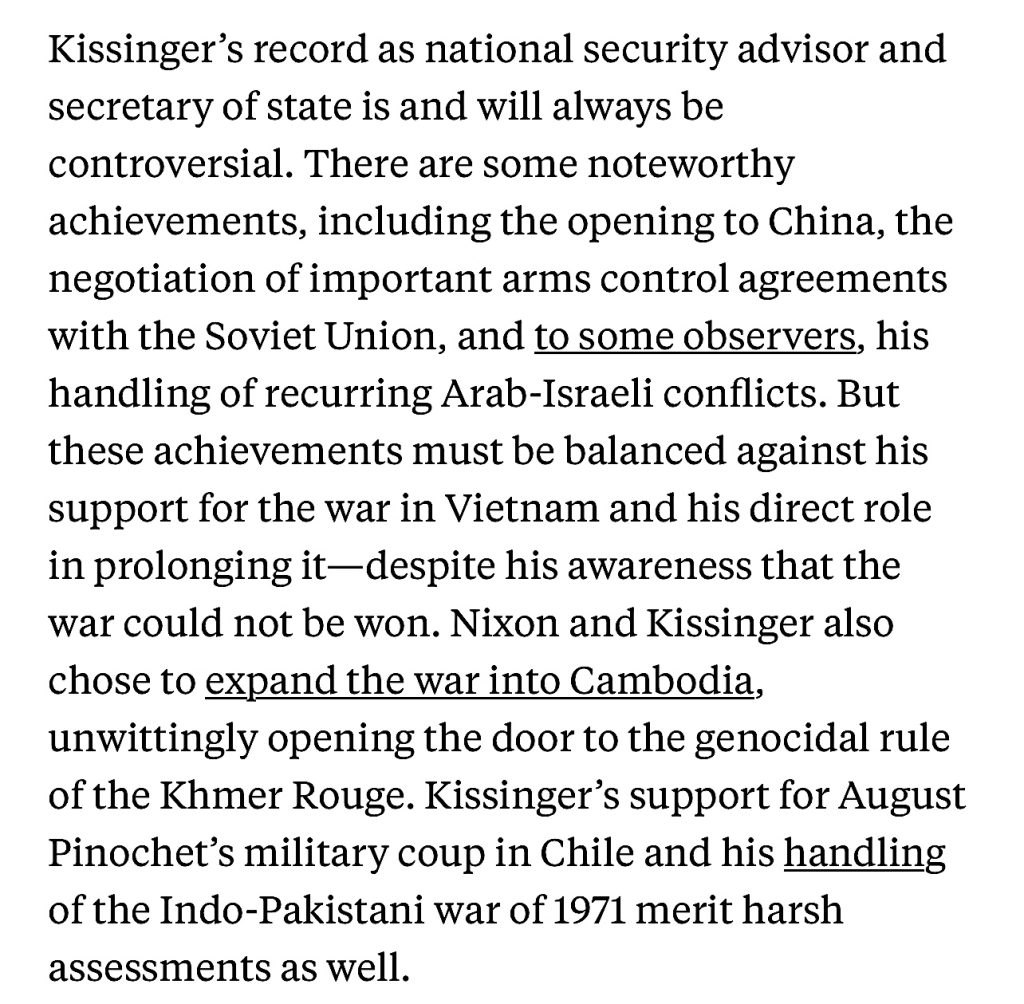
A chat with No Country for Old Men co-director and co-writer Ethan Coen at a Miramax press luncheon — Sunday, 5.20.07, 1:55 pm:
HE to Ethan: “The only speed bump for mainstream audiences in No Country for Old Men, as you know, is your decision to not allow audiences to share in Josh Brolin‘s final fate, as it were.”
Ethan to HE: “And that’s a perverse decision, isn’t it?”
HE: “Well, that’s one of the things that give the film artistic authority and distinction, and it either makes people respect it or…”
Ethan: “Or dislike it.”

HE: “Well, we all know that there’s a certain expectation [out there], that when you’ve spent the entire movie with a guy, you wanna…but for me, this is what makes the film extra-special.”
Ethan: “And for us too. I mean, it’s just from the novel and [garbled]. But when you get to this point you say, ‘Okay, the movie’s not ultimately about this guy…so what is it about?'”
HE: “About the end of the world, about the good old stuff really coming to an end, about being engulfed by waste and annihilation.”
Ethan: “Uh-huh!”